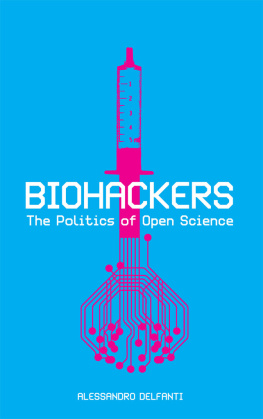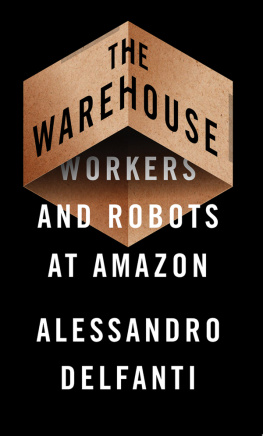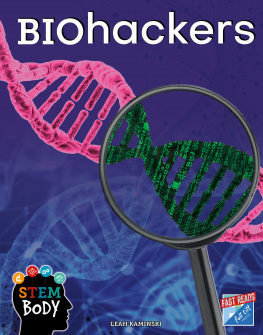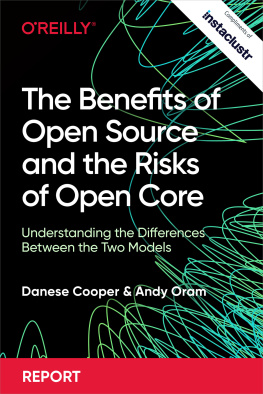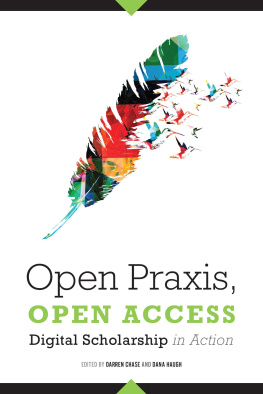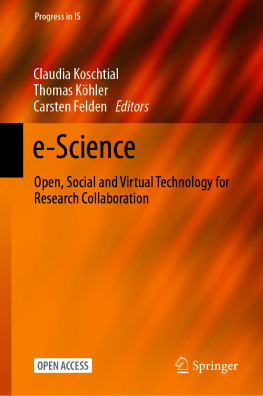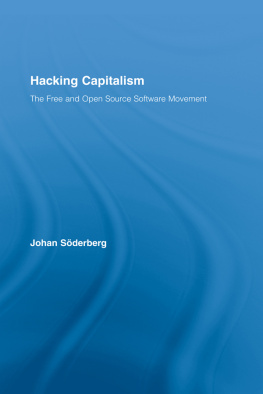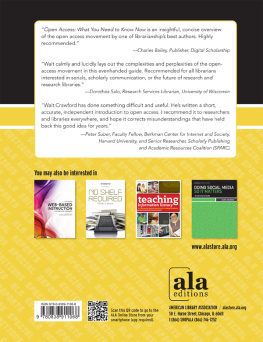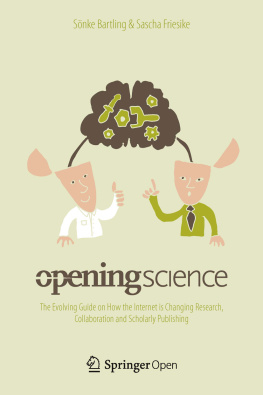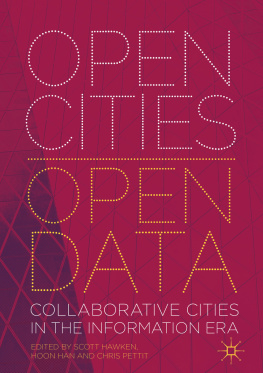Biohackers

First published 2013 by Pluto Press
345 Archway Road, London N6 5AA
www.plutobooks.com
Distributed in the United States of America exclusively by
Palgrave Macmillan, a division of St. Martins Press LLC,
175 Fifth Avenue, New York, NY 10010
Copyright Alessandro Delfanti 2013
The right of Alessandro Delfanti to be identified as the author of this work has been asserted by him in accordance with the Copyright, Designs and Patents Act 1988.
British Library Cataloguing in Publication Data
A catalogue record for this book is available from the British Library
ISBN 978 0 7453 3281 9 Hardback
ISBN 978 0 7453 3280 2 Paperback
ISBN 978 1 8496 4906 3 PDF eBook
ISBN 978 1 8496 4908 7 Kindle eBook
ISBN 978 1 8496 4907 0 EPUB eBook
Library of Congress Cataloging in Publication Data applied for
This work is licensed under the Creative Commons Attribution-NonCommercial-NoDerivs 3.0 Licence. Permission for reproduction for non-commercial purposes is granted by the author and the publisher free of charge.
To view a copy of this licence, visit http://creativecommons.org/licenses/by-nc-sa/2.0/uk/ or write to Creative Commons, 559 Nathan Abbott Way, Stanford, California 94305, USA. Reproduction of the text for commercial purposes is prohibited without the express permission of the publisher.
This book is printed on paper suitable for recycling and made from fully managed and sustained forest sources. Logging, pulping and manufacturing processes are expected to conform to the environmental standards of the country of origin.
10 9 8 7 6 5 4 3 2 1
Typeset from disk by Stanford DTP Services, Northampton, England
Simultaneously printed digitally by CPI Antony Rowe, Chippenham, UK and Edwards Bros in the United States of America
Preface

Every year a different Italian city hosts a large and important hackmeeting. In 2007 hackers were gathering in Pisa at the Rebeldia social centre: the centres rooms were filled with weird computers, cables, hackers, political activists and free culture advocates. The hackmeeting is a place where people share knowledge, and workshops are organised in a completely open way with a wiki. That year, my friend Tibi and I held a workshop titled Hack Science, in which we intended to discuss with hackers the various ways in which social movements had got their hands dirty with science: used it, contested it, commissioned it, conducted it according to their political needs. That was perhaps the first time in which I explicitly linked science with hacking.
However, the description of the workshop said: when activism knocks on labs doors. Navely enough, our idea was not to talk about active hands-on intervention on the natural world, but rather the use of science for political purposes. Hackers were eager to discuss how to hack science, but despite the significant politicisation of the hackmeeting workshops that year ranged from conspiracy to cryptography, from Linux to VoIP privacy they wanted to discuss the possibility of getting their hands dirty with science. Then, and only then, science politics might follow, with its corollary of expert panels, independent research and protest.
Three years later, I was packing up my stuff and heading to the US West Coast to meet DIYbio (Do-It-Yourself Biology), a network of amateur biologists that in many ways is related to the traditions, myths and practices of hackers and who even share physical spaces with computer hackers (they set up wet labs for citizen biology in hacker spaces). Shortly before leaving Italy, I asked a friend to give me some classes on basic biotechnology tools and practices in order to refresh my knowledge from my days as a veterinary microbiologist and cytologist. The main piece of advice he gave me was about chemical and biological safety. He wanted to make sure I would not use dangerous chemicals such as methyl bromide (which he believed to be poorly regulated in the US) in an environment as creepy and unsafe as an amateur lab set up in a garage.
Yet when I visited hackerspaces in Seattle and Los Angeles I found myself extracting DNA from strawberries with a buffer solution made out of dish soap, or trying to use free software to resuscitate a ten-year-old polymerase chain reaction machine. I quickly realised that the science conducted by DIYbio might be very basic, and certainly not dangerous at all. Hacking in the sense Italian hackers gave to the word was only one part of their activities. On the other hand, I saw DIYbio members dealing with the FBI, organising conferences on open science, launching start-ups, looking for funding and writing letters to the US Presidential Commission on Bioethics. Politics for DIYbio were as routine as they are for any other social movement. Yet it was a very different type of politics compared to the radical tradition of Italian hackers.
These two stories illustrate how hacking can be a complex and multifaceted technical and political concept: thats why I believe that referring to hacking to explore biology helps make sense of some of the transformations that life sciences have gone through during the last decade. During and after the two events mentioned above, I have continued working on the edge between open science and forms of resistance to the new enclosures represented by intellectual property rights. As a crucial part of my political experience I knew that information and knowledge, far from being a common good freely created and shared by collective intelligence, were being increasingly privatised. Indeed, intellectual property rights have emerged as one of the main battlegrounds where the long-standing clash between privatisation and redistribution of wealth takes place. Scientific knowledge has been, together with the cultural industry, the main object around which this clash has revolved. Think about the problem of patents on genes. Yet, I also knew that the opposition between open and closed science was not enough to understand these clashes.
Profit, the organisation of labour and production, hierarchies and participation are problems just as important as access to information and knowledge. Thus, this book is not intended to be merely a sociological account of open science, but rather a proposal on the complex evolution of biology and its relationship with society and the market. Furthermore, I hope it will contribute to the debate about openness, free culture and hacking that has left the inner circle of practitioners long ago and has become diffused on a global scale.
I consider myself a member of the open access and free culture movements, and I am aware that my book runs the risk of being biased. Yet I also firmly believe a different viewpoint on open science has long been needed. Hacking, open source, piracy and free culture are all parts of the battles over information that are among the most important in contemporary societies. The radical request for transparency that characterises Wikileaks and governments response to its practices, the rise of the Pirate Parties in Europe, the ghost of the hacker group Anonymous and its global actions, the incredibly harsh juridical clashes around intellectual property rights we have been witnessing over the last few years and the global regulations emerged to control them all these phenomena testify to the growing importance of struggles around information control in our time.
Who controls the creation, distribution and appropriation of information and knowledge? This question is bound to become one of the key questions of our times and has deeply affected my work. Several years ago, while I was studying a transformation in the public image of scientists, I ended up (much to my surprise) tackling the relationship between cultural change and biocapitalisms evolution, where intellectual property rights and access to knowledge and information are crucial issues that have a deeper and more complex role than issues of public image.
Next page
